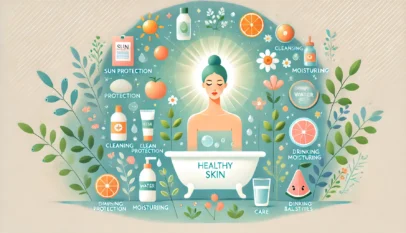Discover Effective Natural Prevention Methods
White hair can be a source of concern for many individuals, prompting them to seek effective solutions. Understanding the primary causes of white hair, which include genetic factors, nutritional deficiencies, and stress, provides a foundation for action. With the right information, one can explore natural methods to prevent premature graying.
Natural remedies and lifestyle changes can play a significant role in maintaining hair’s natural color. From incorporating specific vitamins and minerals into the diet to managing stress levels, these strategies can nourish hair follicles. This article will delve into practical ways to keep hair vibrant and minimize the onset of white strands.
When individuals recognize the factors contributing to white hair, they empower themselves to take proactive steps. By exploring natural prevention methods, one can approach hair health with knowledge and confidence.
Understanding White Hair
White hair occurs due to a variety of factors, particularly the loss of pigment in hair follicles. Key contributors include genetic predisposition, aging, and environmental influences. This section explores the main causes and factors that play a role in the development of white hair.
Causes of White Hair
The primary cause of white hair is the reduction of melanin production in hair follicles. Melanin is the pigment responsible for hair color. Factors that can lead to decreased melanin include:
- Nutritional Deficiencies: Lack of essential vitamins and minerals like B vitamins, iron, and copper.
- Medical Conditions: Certain autoimmune diseases, hormonal imbalances, and thyroid disorders can contribute to premature graying.
- Stress: Chronic stress may impact the body’s overall health, potentially leading to vitamin deficiencies or other issues that affect hair pigmentation.
Identifying and addressing these underlying causes can sometimes prevent further graying.
Genetics and White Hair
Genetic predisposition plays a significant role in the timing and occurrence of white hair. If a person has family members who experienced early graying, they may also be prone to it.
- Hereditary Patterns: The age at which one’s parents or grandparents turned gray can indicate similar patterns.
- Ethnic Differences: Studies show that different ethnic groups may experience white hair at varying ages. For example, Caucasians may start graying in their 30s, while individuals of Asian descent may start in their late 30s, and those of African descent often experience it in their mid-40s.
Understanding genetic factors allows for realistic expectations regarding hair color changes.
Age-Related Graying
As individuals age, the likelihood of developing white hair increases. Aging skin and hair follicles naturally slow down melanin production.
- Biological Process: The aging process diminishes the proliferation of melanocytes, the cells that produce melanin.
- Average Age of Graying: Most people begin to notice white hair in their 30s or 40s, although this can vary widely.
This slow progression often reflects not just genetic influences but also lifestyle choices that can impact overall health, including diet and stress management.
Prevention and Natural Remedies
Maintaining hair color and preventing premature graying involves a combination of nutritional support, lifestyle choices, and home remedies. Each approach can contribute to hair health and may slow down the graying process.
Nutritional Interventions
Nutrition plays a vital role in maintaining healthy hair and preventing graying. Key nutrients include:
- Vitamin B12: Deficiency can lead to pigmentation loss. Sources include dairy, eggs, and fortified cereals.
- Folate: Supports hair cell production. It is found in leafy greens, legumes, and citrus fruits.
- Iron: Important for oxygen transport to hair follicles. Rich sources include red meat, spinach, and legumes.
- Antioxidants: Foods high in antioxidants, such as berries and nuts, combat oxidative stress, which can impact hair pigmentation.
Incorporating these nutrients into daily meals can help improve hair health and may delay the onset of graying.
Lifestyle Modifications
Certain lifestyle changes can positively influence hair condition. Stress management is crucial, as chronic stress may accelerate graying. Techniques include:
- Mindfulness and Meditation: Engaging in practices that promote relaxation can reduce stress levels.
- Regular Exercise: Enhances blood circulation, delivering nutrients effectively to hair follicles.
- Adequate Sleep: Quality sleep supports overall well-being, including hair health.
Avoiding harmful habits, such as smoking, is also significant. Smoking is linked to premature graying due to its adverse effects on circulation and overall health.
Home Remedies for Hair Health
Several home remedies may support hair health and prevent graying. They include:
- Coconut Oil: Known for its moisturizing properties, it can strengthen hair and reduce breakage.
- Amla (Indian Gooseberry): Rich in vitamin C and antioxidants. Applying amla oil or consuming amla juice may promote natural pigmentation.
- Henna: This natural dye helps cover gray hair and condition the hair shaft without harsh chemicals.
- Rosemary Oil: Massaging the scalp with rosemary oil may stimulate hair growth and improve circulation.
Using these remedies regularly can enhance hair vitality while encouraging pigmentation retention.
Vaishno Devi Helicopter Booking: Your Complete Guide for a Hassle-Free Pilgrimage
Visiting Vaishno Devi is a spiritual journey that attracts millions of pilgrims each year.…















